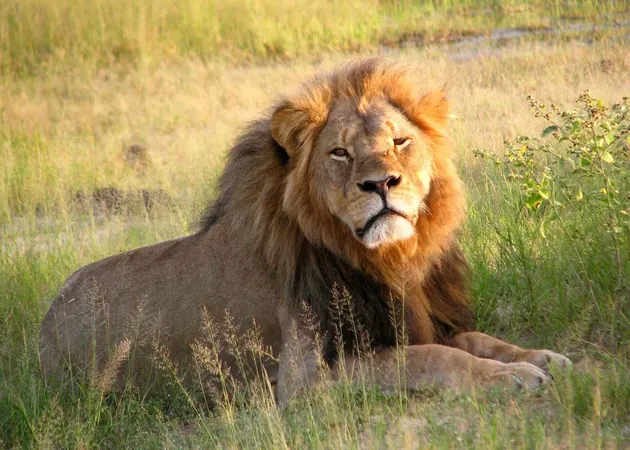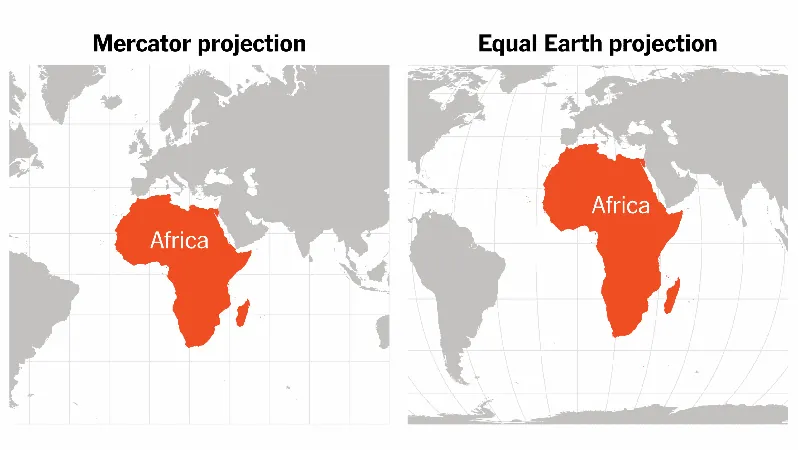
Cecil the Lion: A Legacy of Hope for Africa's Big Cats
2025-08-26
Author: Olivia
Revisiting the Iconic Cecil
Do you remember Cecil the lion? This majestic king of the Hwange National Park in Zimbabwe captivated wildlife enthusiasts and tourists alike with his flowing mane and regal demeanor. A symbol of strength, Cecil commanded respect as the leader of several prides until a tragic event changed everything.
The Outrage That Sparked Global Attention
In July 2015, Cecil was lured outside the park and killed by a trophy hunter, sending shockwaves around the world. This brutality was met with widespread outrage, igniting debates on wildlife conservation and the ethical implications of trophy hunting. In the wake of his death, U.S. comedian Jimmy Kimmel, visibly emotional, used his platform to shed light on the incident, sparking a firestorm of discussion online.
The Grim Reality for Lions in Africa
Cecil’s death highlighted a more profound issue: the alarming decline in lion populations across Africa. Once a dominant species, lions have been classified as Vulnerable by the IUCN since 1996, with their numbers dwindling to around 29,000. North African lions are nearly extinct, and West Africa's population is critically endangered, comprising just a couple of hundred individuals. Sadly, the lion's fate seemed to hang by a thread.
A Glimmer of Hope Ten Years Later
Fast forward ten years, and while the overall trend of lion populations remains concerning, there are encouraging signs of recovery in some regions. In southeast Senegal, a lioness named Florence, recently photographed with her three cubs, represents hope against the odds. Florence has given birth to nine cubs, significantly contributing to the park's lion population, which has tripled since 2011.
Community-Led Initiatives Making a Difference
In West Africa, initiatives like the W-Arly-Pendjari Complex are stabilizing lion populations despite ongoing violence in the area. Conservationists like Andrew Loveridge, part of the global wild cat organization Panthera, emphasize that with adequate funding and local involvement, lions could bounce back.
Meanwhile, innovative community-led projects are empowering locals to coexist peacefully with lions. In Kenya and Tanzania, programs have trained 'lion defenders' to reduce human-wildlife conflict, showcasing a transformative approach to wildlife conservation.
Cecil's Enduring Legacy
Cecil's tragic fate has ultimately galvanized conservation efforts across the continent. Donations surged following his death, and dedicated individuals like Moreangels Mbizah have established organizations aimed at protecting lions. Since then, various regions have reported new sightings of lions, and even reintroductions have occurred in places like Malawi and Rwanda, where once they were extinct.
The resilience of lions, combined with the growing support from local communities, suggests that with continued efforts, their populations can thrive once more. Ensure that Cecil's legacy powers the push for lion conservation so future generations can witness these magnificent creatures roaming the wild.









 Brasil (PT)
Brasil (PT)
 Canada (EN)
Canada (EN)
 Chile (ES)
Chile (ES)
 Česko (CS)
Česko (CS)
 대한민국 (KO)
대한민국 (KO)
 España (ES)
España (ES)
 France (FR)
France (FR)
 Hong Kong (EN)
Hong Kong (EN)
 Italia (IT)
Italia (IT)
 日本 (JA)
日本 (JA)
 Magyarország (HU)
Magyarország (HU)
 Norge (NO)
Norge (NO)
 Polska (PL)
Polska (PL)
 Schweiz (DE)
Schweiz (DE)
 Singapore (EN)
Singapore (EN)
 Sverige (SV)
Sverige (SV)
 Suomi (FI)
Suomi (FI)
 Türkiye (TR)
Türkiye (TR)
 الإمارات العربية المتحدة (AR)
الإمارات العربية المتحدة (AR)